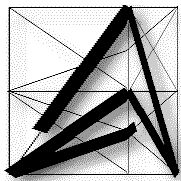Oddelek za filozofijo FF UM in DAF (Društvo za analitično filozofijo in filozofijo znanosti) vabita na predavanje: »Ekspresivistično pojmovanje vrednostnih sodb: Vrednostne sodbe kot vrsta izrazov v mi intencionalnem načinu« »An Expressivistic Account of Value Judgments: Value-Judgments as a Kind of Expressions in the We-Intentionality Mode«
Predaval bo prof. dr. Johann MAREK (Inštitut za filozofijo, Duhoslovna fakulteta, Univerza Karla in Franca v Gradcu.) Predavanje, ki bo v angleškem!jeziku, bo v torek, 16.maja 2017, ob 18.uri v predavalnici Južni stolp na rektoratu Univerze v Mariboru, Slomškov trg 15, drugo nadstropje. Prisrčno vabljeni.
O predavatelju: Prof. dr. Johann Marek je študiral filozofijo v Gradcu, kjer je tudi doktoriral in leta 1989 habilitiral. Od leta 1997 je profesor filozofije na Inštitutu za filozofijo Karlove in Francove univerze v Gradcu s poudarkom na meta filozofiji, filozofiji duha, filozofiji jezika, teoriji vrednot, filozofiji 19. in 20. stoletja (avstrijska filozofija Brentano, Meinong, Marti, Wittgenstein). Bil je tudi predstojnik Inštituta Alexiusa Meinonga. Profesor Marek je napisal knjigo Intentionalität und Kausalität. Probleme intentionalistischer Handlungstheorien, bil je sourednik revije Conceptus – Zeitschrift für Philosophie in sourednik več knjig o avstrijski filozofiji kot so: Chisholm R. M., J. Marek (eds.) Franz Brentano: Über Ernst Machs “Erkenntnis und Irrtum”. Mit zwei Anhängen: Kleine Schriften über Ernst Mach. Der Brentano-MachBriefwechsel; Lehrer K., J. Mareks (eds.) Austrian Philosophy, Past and Present. Essays in Honor of Rudolf Haller; Marek J., M. E. Reicher (eds.), Experience and Analysis. Proceedings of the 27th International Wittgenstein Symposium. /Erfahrung und Analyse. Akten des 27. Internationalen Wittgenstein Symposium; Antonelli M. J. Marek(eds.), Anton Marty — Deskriptive Psychologie. I
zvleček predavanja/Abstract: Referring to Wittgenstein’s statement that psychological verbs in the first person present can be used in an expressive and not a descriptive way, my talk will outline the view that, despite its linguistic form, a value judgment rather expresses a value attitude (evaluation, appraisal) than it describes things as having special objective value properties. It is the mind (the emotions and desires of a person or a group of persons) which determines the value of a thing, and not the other way around, i.e. that values would have their validity independently of being valued. Values are in a sense mental facts (“psychische Tatbestände” in order to use a term from Dilthey), and as subjects usually belong to groups, societies, values generally are social facts. They are mainly constituted and maintained by our evaluations (value attitudes or value judgments) and, behind them, by our value feelings. Judging values of something are a special kind of mental activity, such as assuming, judging, wishing and feeling something are. Since values are mostly social facts, value attitudes have a collective character (we-intentionality). The linguistic expressions of evaluations are value judgments (utterances). Essential to an evaluation is its normative, emotional-volitive aspect, but value attitudes always contain cognitive components as well. It is important to distinguish value judgments from judgments about values, that is to say descriptions and explanations of values, value attitudes, evaluations etc. Like other mental and social facts (objects), values are something objective, in the sense of being factual, real, which can be grasped by experience. Value judgments are in a way more similar to commands than to descriptions. In commanding no direct truth claim is made, although a propositional content is entertained. Nevertheless, ordering or commanding speech acts have their felicity conditions and seem to be governed by logical rules (cf. logic of norms). Similarly, in making a value judgment you take propositions into consideration without claiming its truth, and the uttering of value judgments can also be seen as guided by their felicity conditions, and special logical rules and structures can be applied to value judgments as well.
